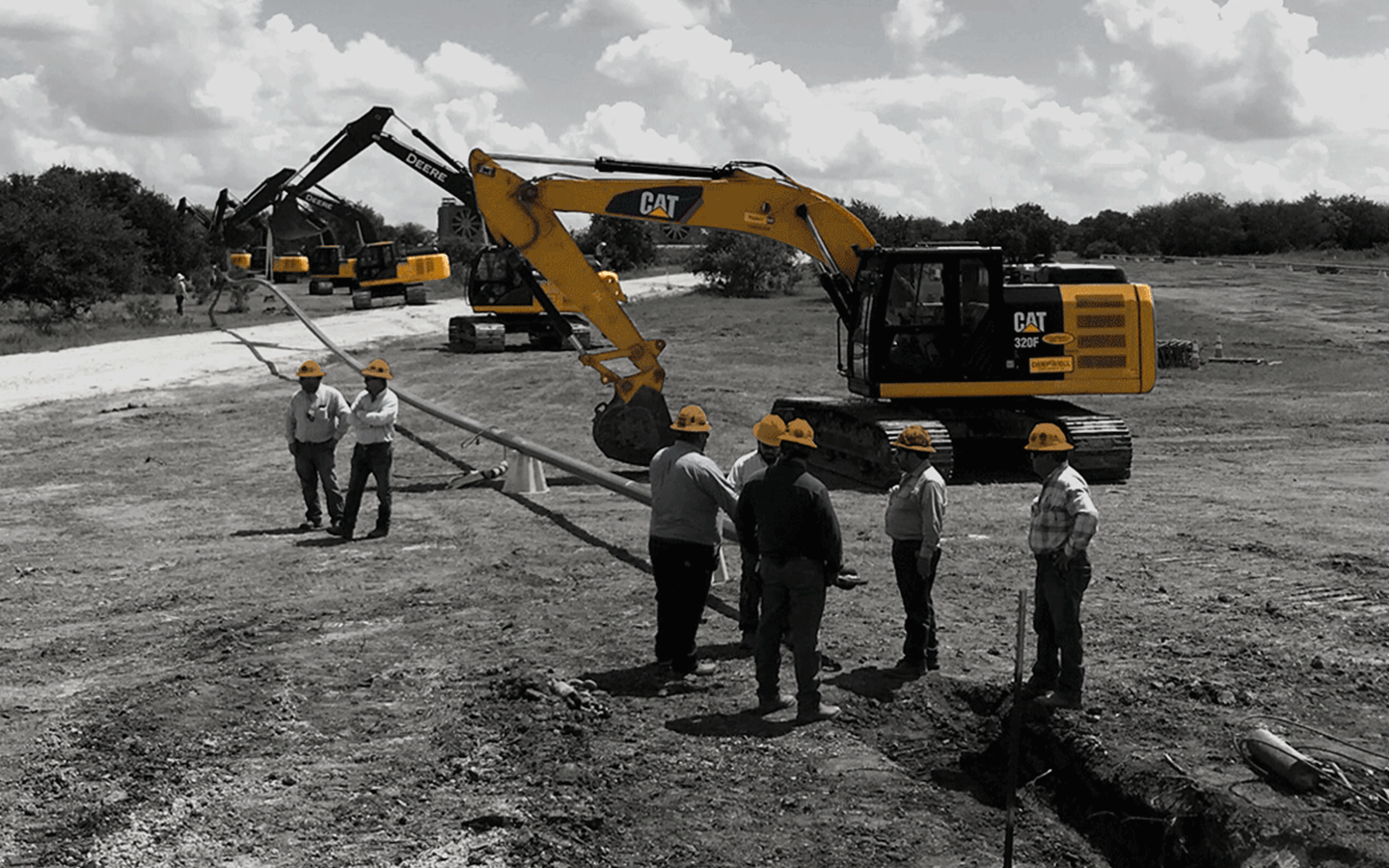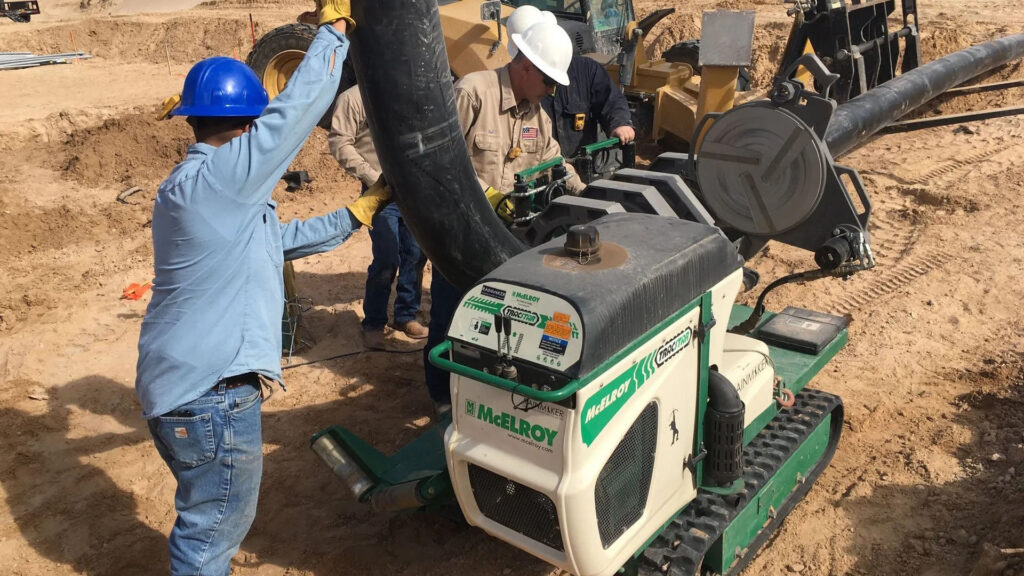Superior Rentals reviews: expert breakdown
A Comprehensive Overview to the Various Sorts Of Oil Field Equipment and Pipeline Equipment Available
The oil and gas industry depends heavily on specialized equipment for efficient extraction and transportation. Various kinds of machinery, from piercing rigs to storage containers, play crucial functions in this complicated procedure. Each tool offers distinct features that add to total operational success. Understanding these elements is crucial for any person involved in the field. As the market evolves, so as well do the modern technologies that support it. What innovations are on the horizon?

Drilling Rigs: The Foundation of Oil Exploration
Drilling rigs serve as the necessary equipment in the domain name of oil expedition, making it possible for firms to gain access to hydrocarbon books hidden deep under the Planet's surface. These rigs are available in different types, consisting of land rigs, offshore rigs, and mobile units, each developed to operate in details settings. Furnished with innovative innovation, drilling rigs can permeate geological formations with precision, ensuring effective resource removal. The architectural integrity and functional capacities of these rigs are crucial, as they should endure severe conditions and significant stress. Furthermore, the option of a drilling rig impacts the total job cost and timeline, making it an important consideration for oil business seeking to maximize their exploration initiatives and make the most of productivity in their operations.
Pumps: Vital for Liquid Activity
In the oil extraction process, the role of pumps is significant, promoting the movement of fluids throughout different phases of manufacturing. Pumps are vital for transferring petroleum, water, and other liquids from below ground storage tanks to the surface and after that with pipelines to refineries. They come in numerous kinds, including centrifugal, positive displacement, and completely submersible pumps, each offering specific functions based upon the fluid attributes and operational needs. Centrifugal pumps are generally used for their efficiency in high-flow applications, while positive displacement pumps succeed in handling viscous liquids. The option of pump impacts total performance, operational safety, and upkeep expenses. Correct selection and maintenance of pumps are important for optimizing manufacturing and minimizing downtime in oil field procedures.
Valves: Managing Circulation and Pressure

Valves play a crucial role in taking care of the circulation and pressure of liquids within oil areas and pipes. Numerous kinds of shutoffs serve distinct applications, each developed to meet particular features fundamental for efficient procedure - Superior Rentals midland. Comprehending the qualities and usages of these valves is crucial for maximizing system performance and safety and security
Kinds of Valves
Crucial components in oil area operations, valves play an essential role in regulating the circulation and pressure of fluids within pipes and tools. Numerous types of shutoffs are used to meet the varied requirements of oil and gas manufacturing. Usual types consist of gateway valves, which give a straight-line circulation and minimal pressure drop; globe shutoffs, known for their throttling capacities; and sphere valves, recognized for their quick on/off control. Furthermore, check shutoffs stop backflow, while butterfly shutoffs supply a light-weight solution for managing flow. Each shutoff type is designed with specific products and arrangements to stand up to the extreme conditions frequently located in oil fields, making sure reliability and efficiency in procedures. Understanding these kinds is critical for effective system administration.
Valve Applications and Features
While different sorts of valves offer distinct objectives, their main applications focus on managing flow and pressure within oil and gas systems. Shutoffs such as gateway, globe, and round valves control liquid motion, making sure peak efficiency and safety and security. Gateway valves are typically made use of for on/off More about the author control, supplying marginal circulation resistance. World shutoffs, on the various other hand, deal precise circulation law, making them appropriate for throttling applications. Round valves are favored for their fast operation and limited securing capacities. In addition, pressure safety valve are critical for preventing system overpressure, guarding equipment honesty. Overall, the appropriate option and application of valves enhance functional effectiveness, ensuring the trustworthy transportation of oil and gas through pipelines and processing centers.
Compressors: Enhancing Gas Transport
Compressors play a vital function in the effective transportation of all-natural gas, guaranteeing that it relocates smoothly through pipes over fars away. These devices increase the stress of gas, allowing it to overcome rubbing and elevation changes within the pipeline system. In addition, compressors facilitate the harmonizing of supply and demand, suiting variations in intake and manufacturing prices. Numerous kinds of compressors are employed in the industry, including centrifugal, you could check here reciprocating, and rotating screw compressors, each offering unique advantages based on the functional requirements. Routine upkeep of these compressors is important to make the most of effectiveness and minimize downtime, eventually adding to a trusted gas transport network. Their vital feature highlights the significance of compressors in the general oil and gas infrastructure.
Storage Tanks: Safe and Efficient Liquid Management
Effective transportation of natural gas depends on different support group, one of which is the correct administration of tank. These containers play an essential function in safely having liquids, making certain that operational performance is preserved while lessening environmental risks. Constructed from sturdy materials, they are made to endure high pressures and corrosive components. Correctly sized and purposefully situated, storage space containers facilitate the smooth circulation of all-natural gas and various other liquids, protecting against traffic jams in supply chains. Normal upkeep and monitoring are important to detect leaks or structural problems, advertising security and conformity with regulative criteria. Eventually, the reliable administration of storage space tanks is essential for the general stability and reliability of the oil and gas industry's liquid handling systems.
Pipeline Systems: Facilities for Transport
Pipeline systems offer as the foundation of the oil and gas industry, facilitating the effective transportation of hydrocarbons over large ranges. These systems read here include different components, consisting of pipes, shutoffs, pumps, and compressors, all thoroughly designed to assure seamless circulation. The products used in pipeline building, commonly steel or high-density polyethylene, are chosen for resilience and resistance to deterioration. Pipeline networks can cover across land and water, connecting manufacturing sites to refineries and circulation. Additionally, progressed innovation allows real-time tracking of flow rates and pressure levels, improving operational performance. The calculated placement of these pipes decreases ecological influence while making best use of source availability, thus playing a crucial role in conference energy needs around the world.
Security Equipment: Guaranteeing Employee and Environmental Security
The operation of pipeline systems, while important for energy transport, likewise offers considerable safety and security challenges for workers and the atmosphere. Safety and security equipment plays a substantial role in minimizing these risks. Personal safety equipment (PPE) such as headgears, gloves, and non-slip footwear safeguards workers from physical hazards. Furthermore, gas discovery systems keep an eye on for leakages, making sure that dangerous substances do not present a threat to personnel or the surrounding ecological community. Emergency situation closure systems are imperative for quickly halting procedures throughout a dilemma, protecting against prospective catastrophes. Spill control products, consisting of absorbents and obstacles, are essential for decreasing ecological effect. In general, investing in all-encompassing safety devices is vital for preserving functional stability and securing both employees and the atmosphere in the oil and gas sector.

Often Asked Questions
How Do I Select the Right Oil Field Equipment for My Task?
Selecting the best oil area tools entails reviewing project specifications, budget restrictions, and functional demands. Consider aspects such as devices reliability, compatibility with existing systems, and the supplier's reputation to ensure peak performance and safety and security.
What Are the Upkeep Demands for Oil Field Equipment?
Maintenance requirements for oil area tools consist of regular evaluations, lubrication, and prompt repairs. Operators must additionally stick to manufacturer standards, screen efficiency metrics, and warranty compliance with safety and security regulations to boost durability and efficiency.

Exactly How Can I Make Certain Conformity With Environmental Laws?
To ensure conformity with environmental regulations, firms must perform routine audits, carry out best techniques, purchase training, preserve appropriate documentation, and stay updated on regulations (Superior Rentals midland). Cooperation with environmental firms can also boost adherence to regulations
What Is the Typical Lifespan of Pipeline Equipment?
The typical life-span of pipeline equipment usually varies from 20 to half a century, depending on aspects such as material top quality, environmental conditions, and maintenance techniques. Regular assessments can significantly affect long life and operational effectiveness.
Just how Do I Securely Deliver Oil Field Equipment to Remote Locations?
Delivering oil field devices to remote areas calls for careful preparation, including course assessment, securing authorizations, using proper vehicles, and guaranteeing safety methods are followed. Appropriate training and interaction amongst teams are essential for successful transport.